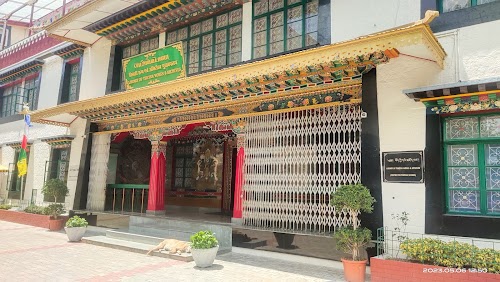
Library of Tibetan Works and Archives
Dharamshala, India
- Attend a Tibetan language course.
- Attend cultural events and workshops.
- Browse the rare manuscript collection.
- Explore the Tibetan art museum.
- Learn about Tibetan philosophy.
- Study Tibetan texts in the reading room.
Known for:
Description:
The Library of Tibetan Works and Archives (LTWA) is a treasure trove for anyone interested in Tibetan culture, history, and Buddhism. Often referred to as the Tibetan library, it houses a vast collection of Tibetan texts, manuscripts, artifacts, and art. Visitors can explore the museum, which showcases Tibetan art and artifacts, or delve into the reading room, which offers a peaceful environment for studying Tibetan literature. LTWA is not just a library; it's a center for learning and preserving Tibetan heritage. The library also offers courses and workshops on Tibetan language, philosophy, and art. It is a must-visit for those seeking deeper understanding of Tibetan culture.
History:
Established in 1970 by Tenzin Gyatso, the 14th Dalai Lama, the Library of Tibetan Works and Archives was created to preserve and promote Tibetan culture and knowledge, which was under threat during the Cultural Revolution in Tibet. The library began with a small collection of texts brought out of Tibet by refugees. Over the years, it has grown to become one of the most important repositories of Tibetan literature and culture in the world. The LTWA has played a crucial role in preserving and disseminating Tibetan knowledge, ensuring that it remains accessible to future generations. It continues to be a vital center for research, education, and cultural preservation.